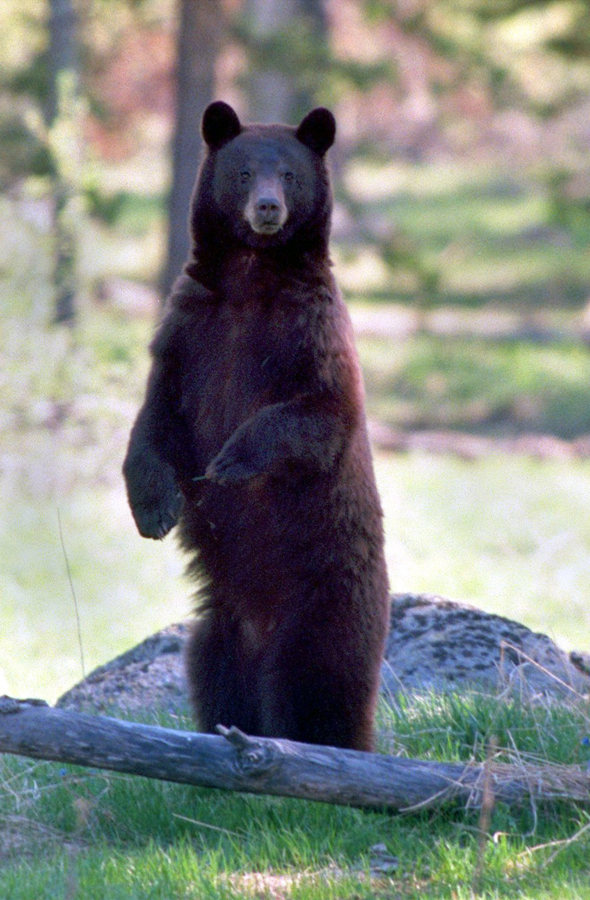Most of Western Washington is considered black bear habitat, and there are about 20,000 black bears throughout the state.
In the Squak Mountain area near Issaquah, a black bear evaded capture for nearly three years, until he was recently captured and killed by wildlife officials. The bear had grown “unnaturally” large as he fed on human food sources — underscoring the importance for the public to learn how to coexist with the animals, especially as urban development expands in King County.
Here is some advice from the Washington State Department of Fish and Wildlife, including what to do if you see a bear.
What to do at home
- Check with your waste-pickup provider about wildlife-resistant carts. While none are “bear-proof,” they do help prevent animals from getting into the bins.
- Keep garbage cans in a garage or another sturdy structure until pickup day, and put them out the morning of pickup, not the night before.
- Don’t put up suet or bird feeders until fall.
- If you have fruit trees, pick up any fallen fruit around your residence.
- Feed your pets and keep their food inside.
- Don’t keep food in your car.
What to do when you explore outdoors
- Stay on trails and avoid areas where bears could be foraging, such as berry patches.
- Hike in groups, and avoid hiking during dawn, dusk and at night.
- Bring bear spray and a safety whistle, and occasionally clap your hands and make other noise — don’t rely on bear bells.
- You won’t hear wildlife if you’re listening to a podcast or talking on the phone, so avoid wearing earbuds.
- Store meals, leftovers or trash in plastic bags or other airtight containers to dispose later. Leaving food or packaging teaches animals to associate trails with food.
- If you’re camping, seal food and scented items (like toothpaste) in airtight containers and then store them in bear-proof canisters or food lockers, at least 100 yards away from where you’re staying.
What to do in the wild
- Don’t intentionally feed a bear or try to get a selfie with the animal — that likely won’t end well.
- If a bear is on your property, clap your hands loudly and “shoo it away.”
- Don’t run. You can’t outrun a bear.
- If the bear sees you, talk softly and calmly and face the bear as you back away slowly. Don’t play dead, unless you’re sure you’re dealing with a bear defending cubs or food. It’s better to stand your ground.



